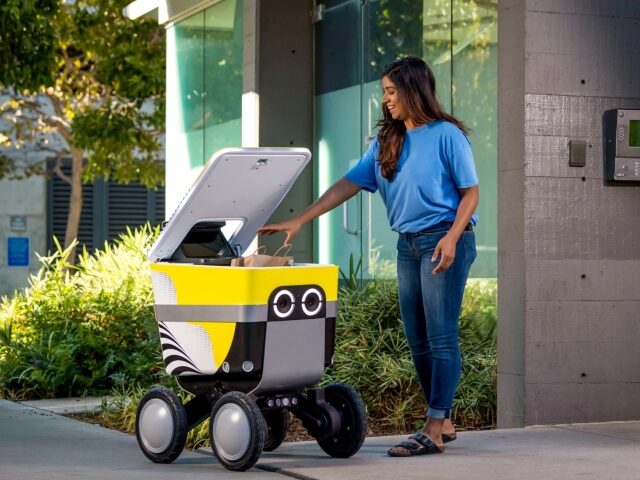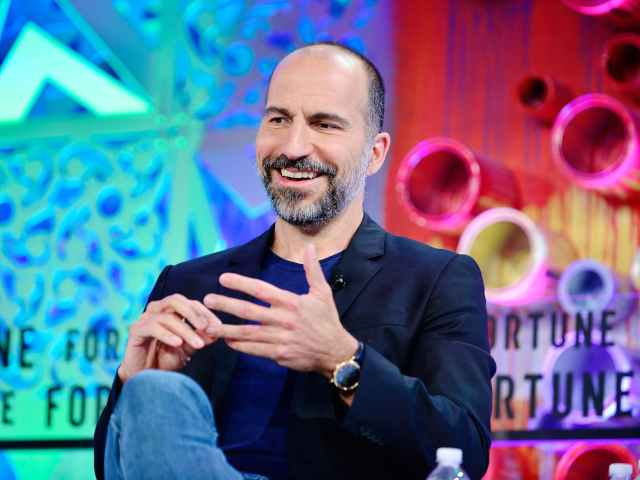In a significant move towards the mass commercialization of autonomous delivery, Serve Robotics is set to deploy up to 2,000 of its sidewalk delivery robots on the Uber Eats platform across multiple U.S. markets.
Techcrunch reports that Serve Robotics plans to use the Uber Eats platform to deploy up to 2,000 of its sidewalk delivery robots in various U.S. markets in a significant step towards the widespread commercialization of autonomous delivery.
The Nvidia-backed company intends to use Uber’s platform to roll out up to 2,000 of its delivery robots in various cities. The collaboration, which got its start as a pilot project in West Hollywood last year, is expected to last until the start of 2026.
This move demonstrates Uber’s continued dedication to autonomy as well as Serve’s goal of mass-commercializing robotics for autonomous delivery. Serve’s robotic deliveries for Uber have increased more than 30 percent month over month since the start of the partnership. The program now includes over 200 eateries in West Hollywood, Hollywood, and Fairfax, with the robots working seven days a week from 10:00 a.m. to 9:00 p.m.
“We expect our rapid growth on Uber Eats to continue,” Kashani told TechCrunch. “We currently have a fleet of 100 robots in Los Angeles, and we expect to operate an increasing number of them on Uber Eats as our coverage and delivery volume on Uber increases.”
Delivery-as-a-service is the foundation of Serve’s business strategy, which means that each delivery is paid for separately. The robots can operate at Level 4 autonomy, according to the Society of Automobile Engineers (SAE), which denotes that under certain circumstances, the vehicle can handle all aspects of driving without human assistance. However, when the robots come across peculiar circumstances, like construction or police tape, they halt and request help from distant supervisors.
Kashani explained that street crossing supervisors also assist with deliveries, but Serve’s robots can recognize driver inattention and prevent collisions on their own. “This is something remote supervisors can do little to help with given how quickly cars appear, versus the delays caused by network latency and human reaction time.”
In addition to Uber Eats, Serve also collaborates with businesses like 7-Eleven and has just finished pilot programs in Arkansas with Walmart and Vancouver with Pizza Hut. Although the company has not yet announced the next cities where it will work with Uber, San Jose, Dallas, and Vancouver are among the possibilities.
Read more at TechCrunch here.
Lucas Nolan is a reporter for Breitbart News covering issues of free speech and online censorship. Follow him on Twitter @LucasNolan


COMMENTS
Please let us know if you're having issues with commenting.